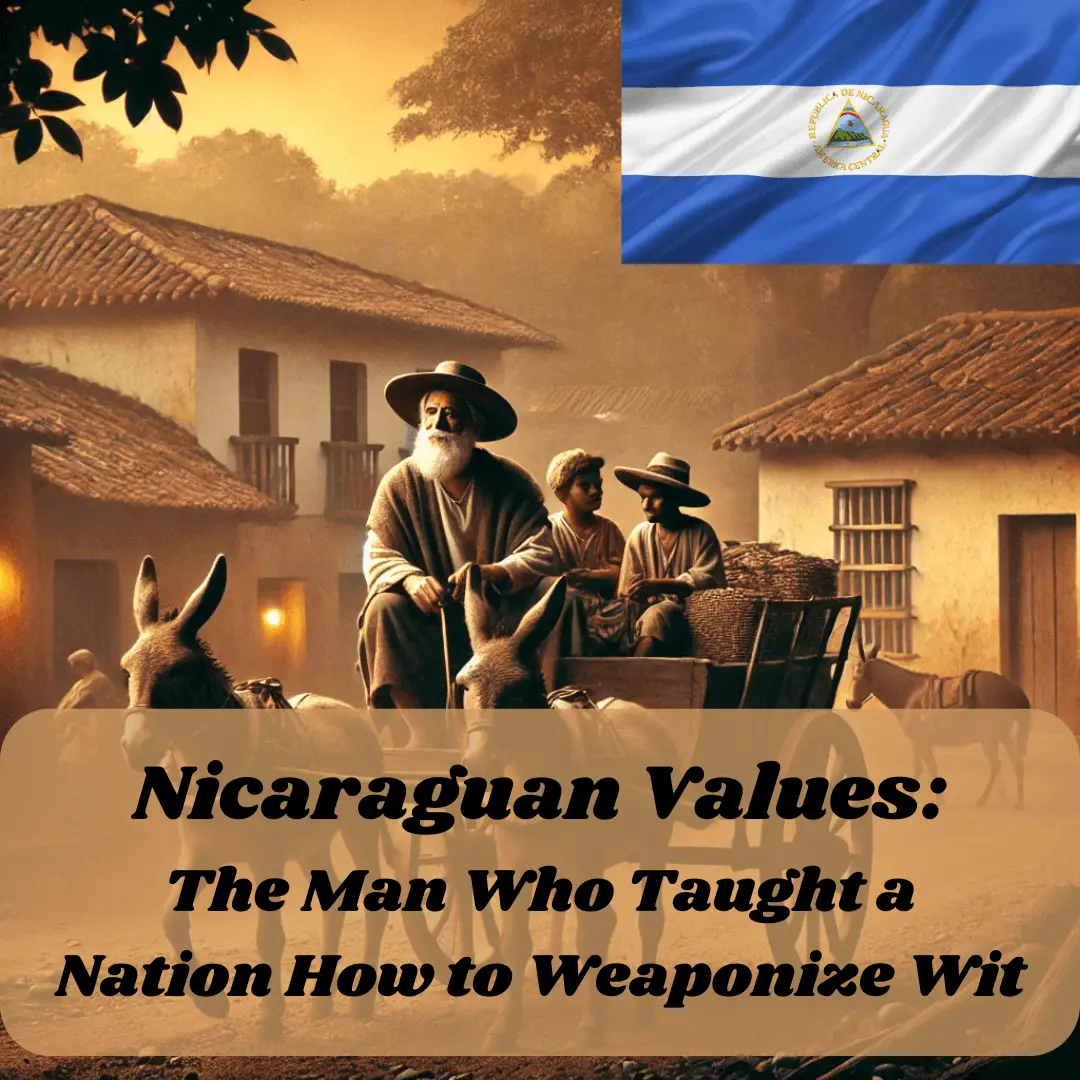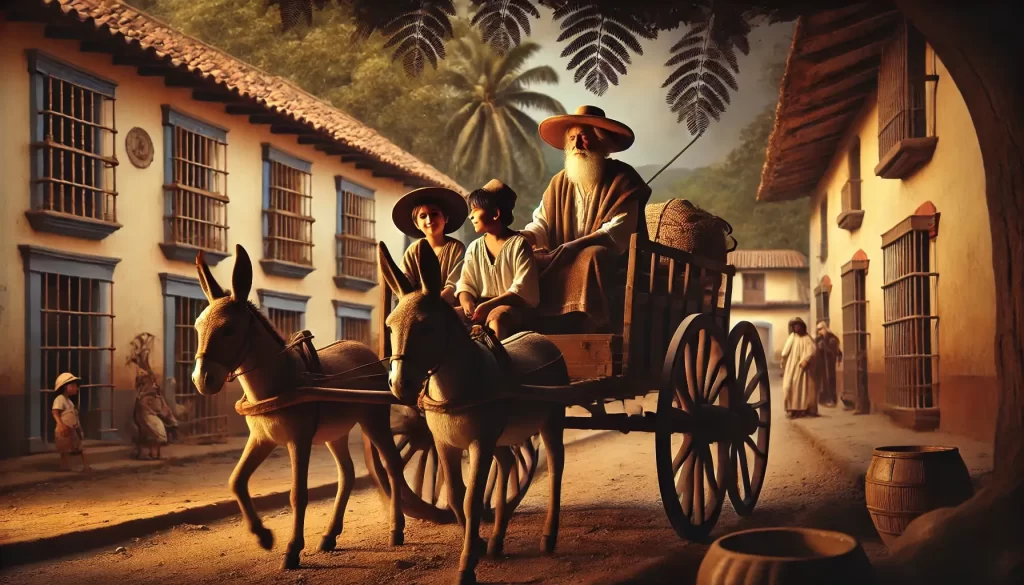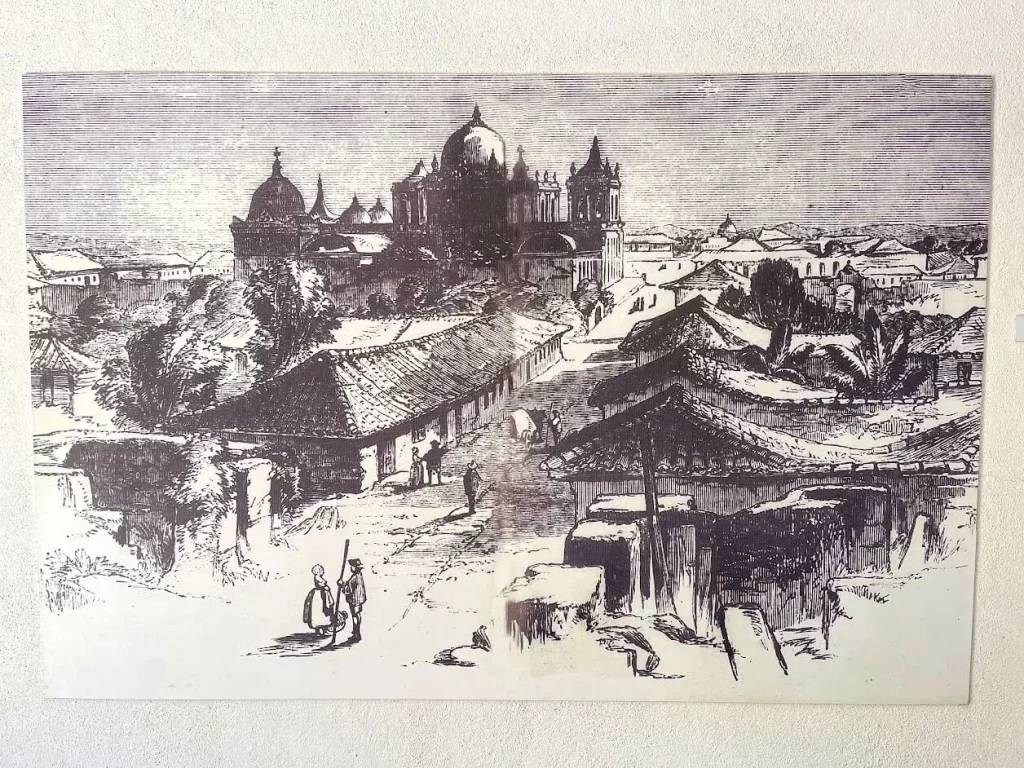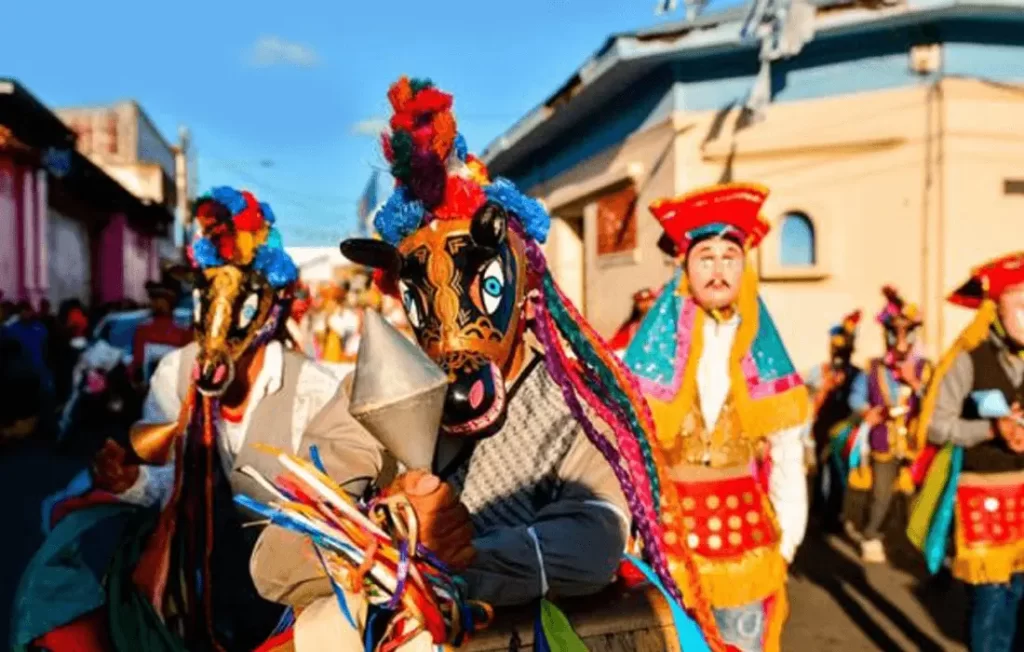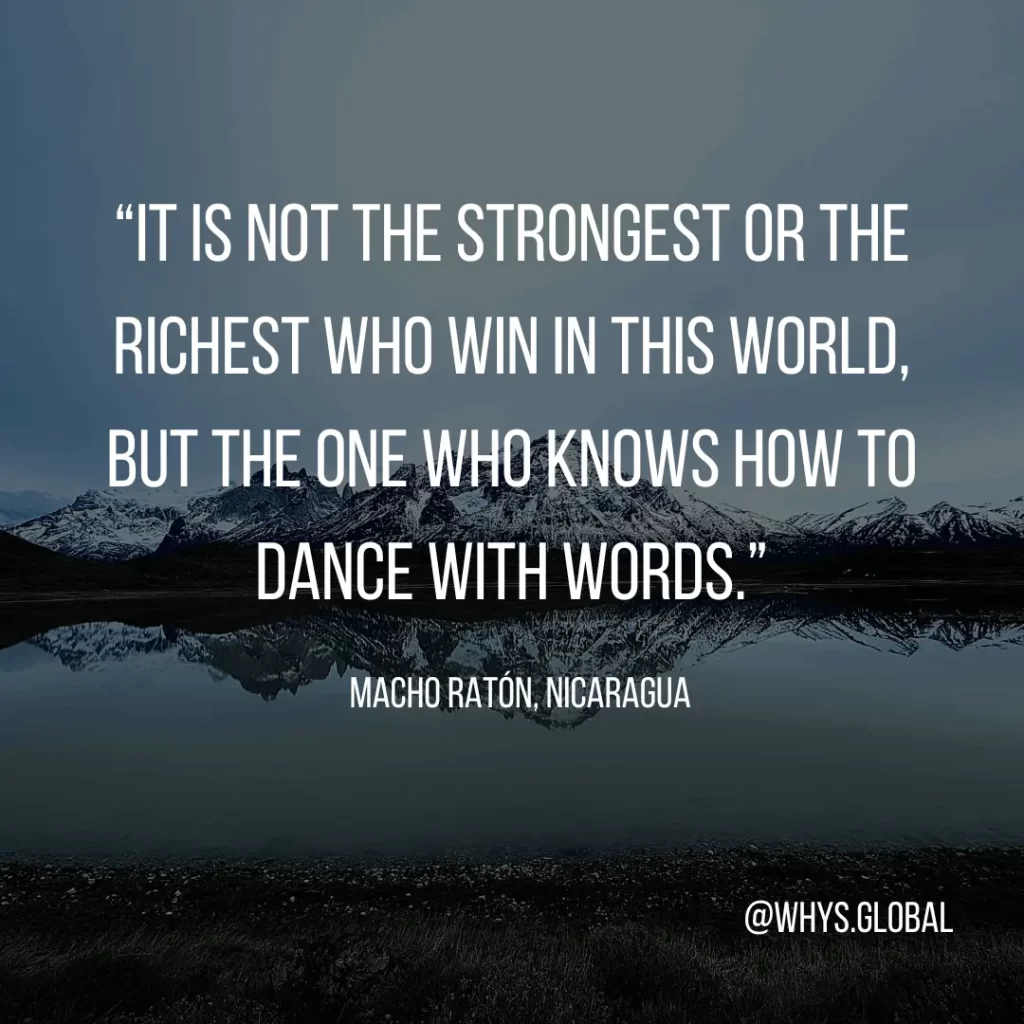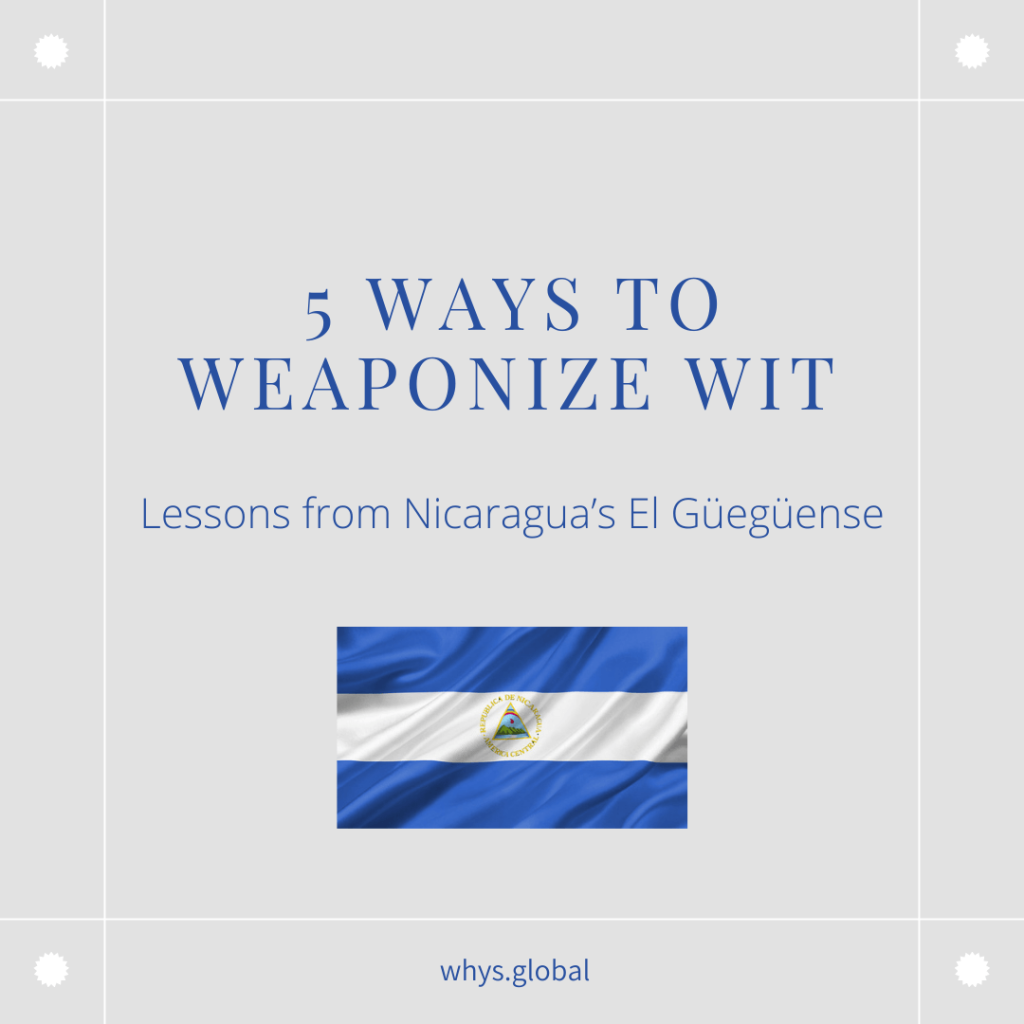Everywhere we look there is (social) structure.
At work, even if we are objectively in the right, we find ourselves being forced to defer to our boss’ line of thinking. At grand family dinners, we hold our tongues in order to avoid offending a particular parent, grandparent, or inlaw. And I’m sure many of us have worked jobs where “the customer is always right”.
In short, some situations seem unwinnable.
But that’s not true. Sure we can’t blow off our bosses, berate our family members, or brush off the customer. But we can do so, just less directly.
Macho Raton, an old wise man at the heart of Nicaraguan values, shows us just how we can traverse these situations and turn unwinnable situations to winnable —all through the power of wit.
Table of Contents
Based upon the classic theatrical performance, the following fairytale echoes the old wise man’s triumph over the tax-imposing Spanish conquistadores, through using nothing but the ultimate Nicaraguan value, his own wit.
The Old Wise Man of Nicaraguan Values: The Story of Macho Raton
Once upon a time, in a land of warm sun and fertile soil, there lived a merchant known far and wide as Macho Raton. He was an old wise man, his eyes sharp as a hawk’s and his words sharper still. Though he had no great riches or title, he possessed a wit so quick it could dance circles around any man’s reason.
One day, a royal proclamation spread through the towns: all merchants in the land were to pay a heavy tax to the Viceroy. Macho Raton, whose goods ranged from fine cloth to delicious cacao, knew that such a tax would leave his purse empty. But where others grumbled and paid, the old wise man hatched a plan.
“Why fight the Viceroy’s soldiers with swords,” he said to his sons, “when I can defeat him with words?”
So, with his sons Forcico and Ambrosio in tow, Macho Raton loaded his donkeys with wares and made his way to the city. Along the way, he rehearsed his scheme, teaching his sons their roles. “Speak only what I have taught you,” he said, “and let no one draw you into their games.”
The Old Wise Man’s Arrival at the City Gates
When they reached the city, the Governor’s officials stopped them. “Who are you, old man, and why have you come?” they demanded.
Macho Raton bowed deeply, but his eyes sparkled. “I am but a humble merchant,” he said, “bringing fine wares to your noble city. See my donkeys? They carry not just goods but the hopes of a loyal subject eager to serve his Viceroy.”
The guards, puzzled by his flattery, let him pass. The old wise man chuckled under his breath. “One step closer,” he muttered.
The Audience with the Viceroy
Before long, Macho Raton stood before the Viceroy himself. The room was filled with courtiers, and the Viceroy, a proud man with a love for his own voice, sat atop a golden throne.
“Who are you, and why have you come to my city?” the Viceroy demanded.
Macho Raton fell to his knees. “Oh, great and wise Viceroy! I am your humble servant, come to offer my wares to your splendid court.” He gestured grandly to his sons and donkeys. “My family and I are but poor merchants, and we live to serve noble men like you.”
The Viceroy narrowed his eyes. “And what of the tax?”
“Ah, the tax!” exclaimed the old wise man, as if struck by a sudden thought. “Of course, of course. But you see, my lord, I have come to bring you the finest silks and the sweetest cacao in all the land, which surely are worth more than mere coins. Would you not prefer gifts over gold?”
The Old Wise Man’s Dance with Words
For days, Macho Raton stayed in the city, weaving a web of half-truths and clever words. To the soldiers, he promised rewards. To the courtiers, he offered flattery. And to the Viceroy, he spoke in riddles, always agreeing yet always avoiding.
When the Viceroy asked why the tax had not been paid, Macho Raton replied, “Ah, my lord, I have instructed my sons to pay it directly. Surely the coins have already reached your treasury!”
The Viceroy called for the sons. Forcico and Ambrosio, as rehearsed, played their parts. They stumbled over their words, pretending confusion, and said only what their father had taught them: “Father knows best, my lord. We are but simple men!”
The court burst into laughter at their foolishness, and the Viceroy, though irritated, could not prove deceit.
The Old Wise Man’s Great Escape
As the days passed, Macho Raton sold his wares and filled his purse. The courtiers, entertained by his antics, turned a blind eye to his schemes. The Viceroy, though suspicious, could not catch the old man in a lie.
Finally, when his donkeys were empty and his purse full, Macho Raton prepared to leave. The Viceroy summoned him one last time.
“You are a strange man, Macho Raton,” said the Viceroy. “You come to my city, flatter my court, and sell your goods, yet you have paid no tax. Tell me, why should I let you go?”
Macho Raton bowed low, his face a mask of sincerity. “Oh, great Viceroy, I have but followed your own wisdom. For you have taught us all that loyalty and service are more valuable than gold. Surely, my humble gifts and service to your court have proven my devotion.”
The Viceroy, caught in his own vanity, waved him away. “Very well,” he said. “Go, and take your foolish sons with you.”
A Lesson in Wit from the Old Wise Man
As Macho Raton and his sons left the city, Forcico laughed. “Father, how did you trick so many clever men?”
“My son,” said the old wise man, “it is not the strongest or the richest who win in this world, but the one who knows how to dance with words. Always remember: when faced with power, wit is the sharpest weapon of all.”
And so, they returned home, their donkeys light but their hearts heavy with triumph. Macho Raton’s tale spread far and wide, a story of cunning and courage, and a reminder that even the mightiest can be outwitted by the clever.
The End.
From the Old Wise Man, Macho Raton, to Nicaraguan Values Today
Nicaraguan Value #1: The Use of Wit
In a story that is laden with finely dressed conquistadores and centered around a physical gold tax, the old wise man is quick to point out that their greatest resource is one that is not taxable: wit. Using wit, the old wise man and his sons are able to out-maneuver the better armed and higher ranking Spanish officials, thus demonstrating that wit and character hold greater value than material goods.
The centering of wit as a Nicaraguan value in contemporary times is exemplified in a plethora of manners:
A) Personal and Public Wordplay:
The witty use of words is seen as a hallmark of social savviness and general intelligence. In everyday conversation, this Nicaraguan value is manifested through an unrestrained use of puns, idiomatic phrases, and playful insults.
The Old Wise Man would also be proud of today’s youth’s proclivity towards wittiness in political cartoons and protests. Satirical wittiness allows for cartoonists to portray their criticisms in a more palatable manner, while protesters use it to ambiguify their words, thus maintaining a degree of clever innocence.
B) Social Navigation:
Deeply valued in both personal and professional settings, wit has led to another Nicaraguan value: creative problem solving. Being able to think outside the box is one’s extension of wit to their own personal philosophy. Paired with wit is the old wise man’s likeability, thus crafting a certain Nicaraguan charm. This is especially evident in social situations where wit and humor are employed to ease tensions, come to agreements, and make understanding connections.
C) Storytelling and Festivals:
Nicaraguan values have long been passed down through oral tradition. In being so, recollections of familial and communal histories have been professed through a lens of wit. This is especially the case during the annual reenactments of Macho Ratons story every year during the feast of San Sebastián, where stories are told, plays performed, and ballets danced —all in the name of the old wise man and the Nicaraguan values that he embodies.
D) Wit as a National Identity:
Moving beyond Nicaraguan values and cultural traits, wit serves as a defining aspect of Nicaraguan identity. The tie of wit to identity has only been strengthened through Nicaragua’s historical struggles, giving birth to a strong sense of communal and cultural resilience.
Nicaraguan Value #2: The Legacy of Resistance and Resilience
In Macho Raton’s story, the old wise man succeeds in evading the strict taxes put in place by the colonial authority. In a sense, this is rebellion. But to the Spanish authorities it goes unnoticed.
Through using an indirect approach, Macho Raton maximizes his position and opportunity. Had he called for a rebellion or flatly refused to pay the taxes, he likely would have been severely punished. Even if a swift rebellion had succeeded, Macho Raton’s indirect approach still allowed him physical and psychological profit; he sold all his goods while also ridiculing the attempt of the Spaniards in an ironic way.
This, unironically, mirrors the Nicaraguan values seen in today’s political landscape. For example, Nicaraguans tend to employ playful banter or indirect commentary as a means of expressing discontent with political or social issues. Channeling the old wise man’s advice, Nicaraguans never fall to adversity; they aim not to push through, but rather, to outwit.
Nicaraguan Value #3: The Art of Persuasion and Social Navigation
The old wise man, Macho Raton, is wittingly cunning, but his act would not succeed without a high degree of persuasiveness. Likening his skills to “dancing with words”, the old wise man’s implication is that persuasion is art, entirely worthy of admiration.
Macho Raton’s aptitude for sharp thinking and adaptability has blossomed into a core feature of everyday life in Nicaragua and is undoubtedly a top Nicaraguan value. Correspondingly, the ability to handle complex social situations without resorting to violence is highly honored in Nicaraguan culture. “Astuto” (being astute) is another Nicaraguan value that comes from this train of thought and is the preferred means of navigating business, politics, and interpersonal relationships.
Nicaraguan Value #4: Humor as a Cultural Staple
The old wise man’s use of humor serves both overt and covert purposes. On the outside, Macho Raton uses humor to diffuse tensions and ingratiate himself with his hosts. Of course, these are not his ultimate intentions, but rather, they help him to make the most of a bad situation.
Although this overt use of humor is valuable in that it allows him to leave free of tax and having made a salesman’s profit, it is the covert humor that brings him the greater joy and has become a staple of Nicaraguan values. The old wise man uses humor as a means of resilience, challenging the Spanish colonists by making a fool of their character and authority.
This same covert humor characterizes modern Nicaraguan values. In a setting where overt resistance to authority is harshly punished, Nicaraguans follow the old wise man’s lead by expressing satirical opinions on the present political unrest. Further, this covert humor—almost like an inside joke among friends—allows for a communal solidarity to thrive and serves as a mechanism to cope with tough times while maintaining a refusal to back down.
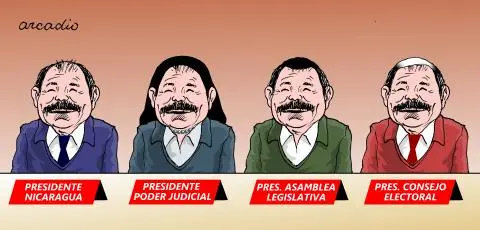
Going Beyond Nicaraguan Values: How to use the old wise man’s advice in our daily lives.
Macho Raton’s story isn’t just an entertaining tale from Nicaragua’s past—it’s a masterclass in embracing Nicaraguan values to navigate life’s sticky situations. The old wise man’s sharp wit wasn’t just about outsmarting the Spaniards; it was about showing that cleverness and humor can flip the script when the odds aren’t in your favor. So, how can we take a page from his book and apply it in our own lives?
1. Handle Authority Like Macho Raton
We’ve all been there: stuck in a situation where someone else has the upper hand. Whether it’s a demanding boss, a nosy family member, or an overbearing customer, going head-to-head rarely ends well. Instead, take a cue from Macho Raton—dance with words, not fists.
- Flattery with a Purpose: People love to feel valued. Highlight their strengths or their vision to get your foot in the door.
- Frame It as Their Idea: Got a brilliant suggestion? Phrase it in a way that lets them take partial credit. They’ll love it, and we’ll still get our way.
- Ask, Don’t Tell: Instead of arguing a point, let’s turn it into a question. Something like, “Wouldn’t it make sense if we…?” forces them to engage with our idea.
2. Diffuse Tensions with Humor: A Nicaraguan Value in Action
Humor isn’t just entertainment in Nicaragua—it’s a deeply embedded cultural tool and a Nicaraguan value that transforms conflicts into opportunities for connection.
- Poke Fun at Ourselves: Self-deprecating humor is disarming and shows we’re not taking things too seriously. It’s a great way to lighten the mood without offending anyone.
- Point Out the Obvious: A funny observation about the situation (like how the meeting feels longer than a Netflix binge) can break the ice.
- Keep It Light: Timing matters. Humor should diffuse, not escalate. Be playful, not cutting, and always read the room.
3. Negotiate Like a Nicaraguan: Charm Meets Strategy
Macho Raton embodied the Nicaraguan value of negotiation, where charm and cunning take the lead. The old wise man understood that getting what you want doesn’t mean overpowering others—it means guiding them toward a mutual win.
- Make It About Them: We need to figure out what the other person values most and frame our request around that. For example, instead of saying, “Can we get a discount?” try, “If we come back regularly, could we work out a better rate?”
- Be Playful: A little humor or clever phrasing makes us more memorable. It’s harder to say no to someone who’s making you smile.
- Stop Talking: We may say our piece and then let silence do the heavy lifting. You’d be surprised how often the next move will work in our favor.
4. Turn “Unwinnable” Situations Around with Creativity
The ability to outwit adversity is a cornerstone Nicaraguan value. Like the old wise man, we can reframe even the toughest challenges by thinking outside the box.
- Look for the Side Door: If the direct route isn’t working, we may ask ourselves: What’s another way to achieve our goal? Creativity often beats head-on confrontation.
- Play to Your Strengths: Let’s not fight battles we’re not equipped for. Instead, let’s lean into what we do best—whether that’s humor, charm, or thinking outside the box.
- Patience Pays: Timing is everything. Sometimes, just waiting for the right moment can turn a loss into a win.
5. Enjoy the Game
Here’s the thing about the old wise man: he loved the challenge. Every clever remark, every twist of the knife, was a small victory in itself. The Nicaraguan value of finding humor and lightness in difficult situations can transform how we approach adversity.
- Think of It as a Puzzle: Instead of dwelling on how unfair a situation feels, ask yourself, “How can I outwit this?” Turning challenges into puzzles keeps you focused and engaged.
- Celebrate Small Wins: Every time you finesse your way out of a tight spot, give yourself credit. It’s a reminder that you’re cleverer than you think.
- Keep Laughing: Life’s too short to take every battle seriously. Find the humor, even in adversity, and let it carry you through.
By thinking like Macho Raton, we can navigate life’s challenges with wit, humor, and just the right amount of audacity. After all, why fight battles the hard way when a clever word or a sharp joke can do the work for you?
Conclusion: Nicaraguan Values from an Old Wise Man
Macho Raton’s tale isn’t just a story—it’s a living embodiment of Nicaraguan values and a testament to the enduring power of wit, resilience, and charm. Whether we’re navigating the rigid hierarchies of the workplace, mediating family tensions, or tackling life’s unwinnable moments, the old wise man reminds us that cleverness and humor are tools as powerful as any weapon. By embracing these Nicaraguan values, we don’t just survive difficult situations; we thrive in them. So, let’s take a lesson from Macho Raton: outwit when you can, laugh when it’s tough, and always dance with words instead of swords. In the end, it’s not about winning or losing—it’s about finding joy in the game.
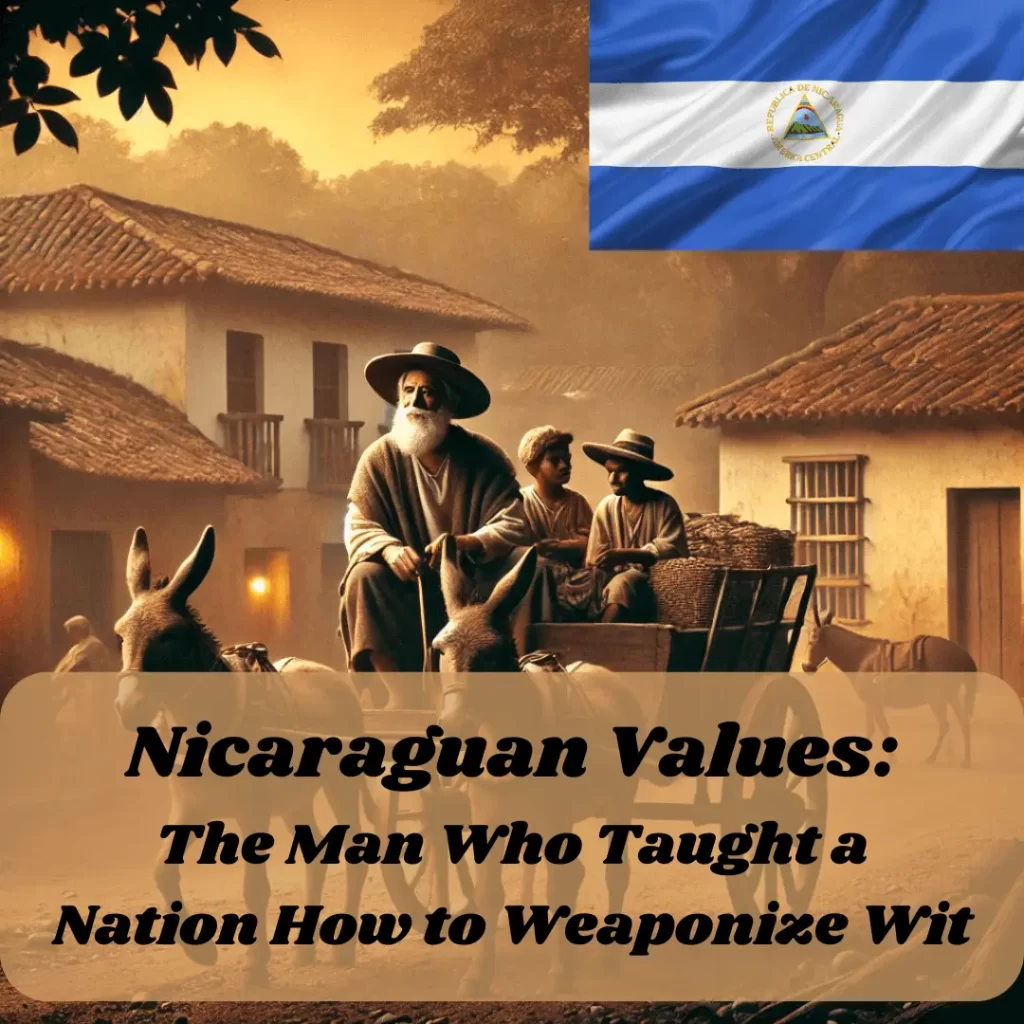
- 5 Danish Lessons and Using Janteloven as a Tool to Save our Future from AI
- Hygge and AI. A Look to a Better Future through 5 Danish Values.
- 8 Tips for a Better Work-Life Balance: Lessons from Danish Values
- Adaptable Risk-Taking: Learn From 4 Mongolian Values
- Live Free. 4 Mongolian Values and Lessons from a Nomadic Lifestyle.


